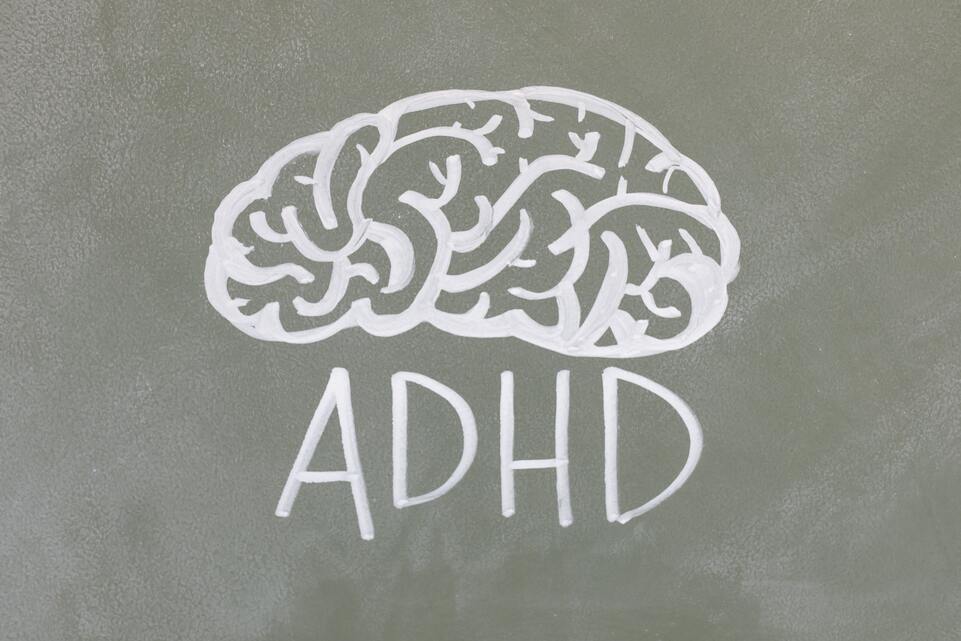
Managing ADHD in the workplace
It is not impossible to have a successful careers and have ADHD, but it takes effort on the part of both parties to understand what ADHD is, how common workplace challenges, such as stress, can exacerbate ADHD symptoms, and how individuals who have ADHD can help give their brains a mini-reset or dopamine boost when needed.
Is ADHD a mental illness?
In short, yes. ADHD is a neurodivergence that results in symptoms that meet the definition of a mental illness in the DSM-V-TR. ADHD, is considered a chronic and debilitating disorder that can have significant impacts on academic, professional, and personal achievements.
ADHD meets the criteria of a disability in Canada, which means schools and workplaces are required to provide reasonable accommodations to those with ADHD. The Accessible Canada Act defines a disability as any impairment, including a physical, mental, intellectual, cognitive, learning, communication or sensory impairment or a functional limitation whether permanent, temporary or episodic in nature, or evident or not, that, in interaction with a barrier, hinders a person’s full and equal participation in society.
This means that all federally regulated employers have a duty to treat everyone with dignity and to create environments that are reasonably free from barriers to participation. While this act only applies to federally regulated workplaces, other provinces have also begun to create similar legislation for their workforces, while other provinces, such as Alberta, address disability or accessibility in various pieces of legislation, but do not have a overarching legislation that requires employers to actively accommodate their workforce.
This may lead to the question: should I disclose my ADHD to my employer?
The answer to that question is complex and there is no right answer for every situation. However, if you are thinking about disclosing your disability, here are some things to consider.
1. Once it’s out, it’s out. You can’t un-ring that bell and while many employers will be happy to help you manage your ADHD in the workplace, others may not. So be sure you understand the context of your organization before disclosing.
2. There remain a lot of myths and misconceptions about what ADHD is. People may feel its an excuse, rather than an explanation, or they may feel its over diagnosed, or something that can be overcome with willpower alone (tip: it’s not!). So while disclosing may seem like a great way to get support, again, it’s important to know your own circumstances before potentially opening yourself up to misguided criticism.
3. It may not stay private. Organizations of any size will have chatter, and that chatter may be directed at your disclosure. So again (we cannot stress this enough), be sure you’re comfortable with this information being discussed around the proverbial water cooler before you disclose your ADHD to your employer.
How does stress impact ADHD?
Stress has a complex relationship with ADHD. While many individuals with ADHD may seem to thrive on the challenge of complex work assignments and tight deadlines, this is neither universally true, nor often the best-case scenario for those who do struggle with ADHD.
Stress and ADHD work together to create a vicious cycle that, unless interrupted, can continue to build to a point where the demands to always meet that next deadline, or to always take on that next project become too much and symptoms of burnout start to seep in.
Stress, while potentially helpful in small doses, can make ADHD symptoms worse when it becomes a chronic state of existence. Chronic stress can change the structure and chemicals in the brain both in the short-term and over time. Add to that the reality that living with ADHD is stressful in and of itself, and you can quickly set up a situation that is destined to collapse under its own weight.
Because stress and ADHD affect the same part of the brain, the prefrontal cortex, when an ADHD brain is stressed, particularly over prolonged periods of time, we see decreased in cognitive and executive function as well as a reduced ability to regulate emotions. As noted by ADHD researcher Dr. Desiree W. Murray, PhD.,
What we can see over time, especially when stress is at the level we could consider toxic or chronic—or traumatic—you can see some effects on the brain… It’s both brain structure, and size of some specific sections, along with brain function, as related to some of the brain chemicals. There is a reduced cognitive capacity for making decisions, goal-setting and problem-solving—the things we think of as related to cognitive self-regulation.
But it’s not simply that stress can make ADHD worse, but that living with ADHD, particularly if you are an adult with a late (or no) diagnosis, brings with it its own stress. Feeling like a failure to accomplish tasks on a set schedule. Having to wait for the rush of anxiety to produce the necessary dopamine in order to complete tasks. Or constantly worrying that you may be letting down a colleague or friend are all stressful in and of themselves. This means that people with ADHD are generally already living at an increased stress level, which means that even small additions of stress can create spirals that can be hard to navigate, particularly without support.
This situation can prove challenging for both employer and employee. However, there are resources to help manage stress and create the conditions for success in the workplace.
First, it is critically important that individuals with ADHD learn what triggers their stress response and then develop strategies to mitigate the worst of the impact. Both individuals and employers have a role to play here.
If you’re an individual trying to manage the stress response in yourself, it is important to take time away from the things that are bringing you the most stress and to change the information processing patterns in your brain. This can look like a simple walk to get some blood flowing, but it can also look like playing a fun and exciting video game, listening to music that encourages you to get dancing, reading an immersive book, or watching movies or shows that make you laugh.
While each of these activities may seem like distractions and time-wasters, they’re actually helping your brain to produce the much needed dopamine – the chemical ADHD brains are naturally low on. By increasing your dopamine, you create the conditions for future action. You allow yourself to build up the fuel needed to tackle the big work project.
This also means that, for employers, if they really want to support their diverse workforce, they should be implementing workplace strategies to help those employees with ADHD. This can mean providing generous leave policies, particularly wellness leave policies that allow your burnt out and stressed workers the opportunity to disconnect and engage in dopamine building behaviours. It can also mean providing generous benefits, such as covering the costs of therapy and prescription medications, to allow your ADHD employees the best chance of workplace success. Of course, these policies don’t only help your ADHD employees, but support all employees, regardless of the challenges they may be facing in their personal and professional lives.
How does ADHD impact workplace relationships?
Individuals with ADHD don’t only have to manage their workload stress, but also the stress that comes from interpersonal relationships. This can be challenging in personal relationships where there is a deep bond of affection to build on but can feel downright impossible when it comes to work relationships where that emotional bond is not there to help weather the rough patches.
Working with a colleague who has ADHD can feel like a challenge. Individuals with ADHD may interrupt conversations because they lack impulse control. They may be perceived as too blunt, or too much, or lacking in basic social skills. And their ADHD symptoms can put work pressure on colleagues too; it can be hard to work with someone who has ADHD is they have a history of missing deadlines, or just pulling things out of the fire at the last second.
But for those living with ADHD, the challenge of navigating social interactions at work, while also managing their own lack of executive functioning, and potentially managing cases of burnout, can also take its toll on ADHD brains. Again, ADHD can live in a vicious circle – expectations, either social or work, go unmet, this causes a stress response in the ADHD brain, this makes meeting the set expectations in the future can be even more challenging as the ADHD brain has no dopamine left to give, which can result in even more unmet expectations… and the cycle continues.
What are the opportunities of workplace ADHD?
While we’ve outlined some of the challenges of having ADHD in the workplace, we shouldn’t overlook the opportunities and benefits provided by those with neurodivergence, such as ADHD.
Individuals with ADHD may be more curious, more creative, more imaginative, and more innovative. Those with ADHD can often make quick decisions and are generally perceived as being excellent in times of crisis, when the brain clears and ADHD allows for a hyperfocus that can produce a significant amount of work in a very short time. This is why people with ADHD will often snatch workplace defeat in the form of a missed deadline from the fire at the eleventh hour.
But that doesn’t mean we should continue to put those with ADHD into crisis, or even near crisis situations. While there may be an immediate pay-off, that cannot be assured, nor is it sustainable, and sooner or later, that ADHD brain will simply run out of the chemicals needed to go forward. It will stop. And it will demand a rest. Employers need to have strategies in place to be constantly managing the workloads and stress of their employees, at least in the work setting. Employers would also benefit from recognizing that while they can support stress management in the workplace through appropriate project assignment, support during particularly busy times, and generous leave policies, their employees also have personal lives that may have their own added stressors. Again, ensuring your employees can access the supports they need – be they medical, psychological, or physical, will pay dividends down the road.
How can CEC support your organization?
If you’re wondering with how to support your diverse workforce, reach out to Canadian Equality Consulting. We offer customized and tailored solutions to all inclusion and equity-based workplace needs. Whether you need training, leadership coaching, or a detailed strategy and action plan, we can help you find the right path to a more welcoming and inclusive workplace.
References
https://www.psychiatry.org/patients-families/adhd/what-is-adhd/

